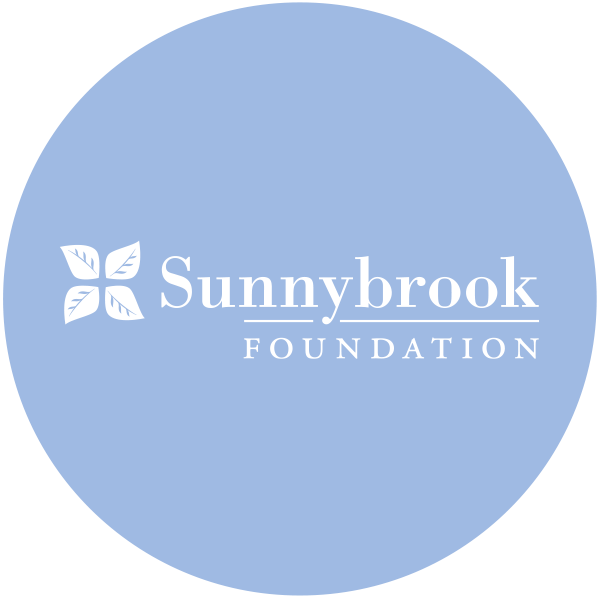
Curated Guide for Parents/Caregivers of a Youth Diagnosed with OCD
Supporting a child, adolescent, or young adult with OCD can feel overwhelming, especially when answers are hard to find. This guide is here to help you feel informed, empowered, and less alone—with trusted resources, expert-backed advice, and compassionate support tailored for parents/caregivers navigating this journey.
A Note to Parents/Caregivers
As a parent/caregiver, you play a vital role in supporting your child with OCD. This guide is designed for adults supporting children/adolescents/young adults, as well as for young adults themselves, but is mostly not suitable for kids. Here, you’ll find resources that focus on helping family members and young individuals navigating OCD. You’ll find a wealth of other OCD and general mental health resources available on the Resources page.
At Connect 4 OCD, we are dedicated to highlighting reliable information, and we’re here to help you whenever you need it. While we don’t provide treatment, we’re more than happy to connect individuals with the right support and advocate for a better understanding of OCD.

Understanding OCD
OCD is often misunderstood, leading to misdiagnosis and ineffective treatments. This section breaks down the basics of OCD, why specialized care is essential, and what steps to take after a diagnosis.
Whether your child has just received a diagnosis or you’re beginning to notice signs of OCD, understanding OCD is the first step toward effective management and recovery.
WHAT IS OCD?
Obsessive-Compulsive Disorder (OCD) is a chronic condition marked by intrusive thoughts (obsessions) and repetitive actions (compulsions) that cause significant anxiety and disrupt daily life. Affecting an estimated 2-3% of Canadians, many face years of misunderstanding and limited access to care. We’re dedicated to raising awareness and improving support.
WHY DO CHILDREN WITH OCD NEED A SPECIALIST?
When a child is struggling with OCD, early and specialized intervention is essential. Pediatric OCD can look different than it does in adults and is often mistaken for behavioural issues, anxiety, or even defiance. A specialist trained in child and adolescent OCD can accurately identify symptoms and use age-appropriate strategies, such as family-inclusive ERP, to support both the child and their caregivers. Working with the right professional ensures your child receives compassionate, effective care tailored to their unique needs.
WHAT ARE PANS/PANDAS?
PANS (Pediatric Acute-onset Neuropsychiatric Syndrome) is a neuropsychiatric condition triggered by an inappropriate immune response to various factors, while PANDAS (Pediatric Autoimmune Neuropsychiatric Disorders Associated with Streptococcal infections) is specifically linked to a Streptococcal infection.
In 2023, the American Pediatric Association officially recognized PANS and PANDAS as legitimate conditions. It’s crucial for those with OCD to learn about these syndromes, as they can often lead to OCD symptoms. Primarily affecting young people, we encourage parents and caregivers to familiarize themselves with this information, especially if your young person has recently been unwell or is experiencing a sudden and intense onset of OCD symptoms. Keep in mind that the onset may not always be immediate.
YOUR CHILD HAS BEEN DIAGNOSED. WHAT ARE THE NEXT STEPS?
Whether your child has just received a diagnosis or you’re beginning to notice signs of OCD, you are not alone. As a parent/caregiver, navigating this journey can feel overwhelming—but with the right tools, guidance, and support, you can make a meaningful difference in your child’s life. Educating yourself is an important and empowering first step. Here are some key ways to support both your child and yourself along the way:
- Learn About OCD
- Connect with a Qualified Professional
- Seek Support
- Utilize Live Webinars
- Prioritize Self-Care
- Early Intervention
Our Top Self-Help Recommendations for Parents/Caregivers
Reliable support and expert guidance can make all the difference in managing OCD. Whether you’re seeking expert-led therapy, community support, or educational resources, these trusted organizations provide invaluable help. From connecting with licensed specialists to accessing evidence-based treatments and peer communities, these resources are here to support you on your journey with OCD.
International OCD Foundation
This is your most trusted resource for OCD, collaborating with top specialists, listing trained clinicians, hosting two annual conferences (one in-person, one online), and offering a kids’ camp. The IOCDF is essential for anyone struggling with or seeking to understand OCD.
NOCD
NOCD connects individuals with licensed OCD therapists, offering expert guidance and accessible support, including therapy services in Canada. Their innovative approach empowers people on the path to recovery.
AT Parenting Survival Online School
AT Parenting, led by Natasha Daniels, offers expert guidance and support for parents of children with OCD and anxiety. She provides resources, hosts support groups, and fosters a welcoming community for families.
Anxiety in the Classroom
Presented by IOCDF. Parents/caregivers & students can find tools & information to help them advocate for school accommodations, as well as to educate their teachers & classmates about OCD & anxiety.
Books for Kids
Wilma Jean the Worry Machine: A Picture Book About Managing Worry and Anxiety
Recommended by NOCD. This fun and humorous book addresses the problem of anxiety in a way that relates to children of all ages. It offers creative strategies for parents and teachers to use that can lessen the severity of anxiety. The goal of the book is to give children the tools needed to feel more in control of their anxiety.
What to Do When You Worry Too Much: A Kid’s Guide to Overcoming Anxiety
Recommended by NOCD. An interactive self-help book designed to guide children and their parents through the cognitive-behavioural techniques most often used in the treatment of generalized anxiety. Metaphors and humorous illustrations make difficult concepts easy to understand, while prompts to draw and write help children to master new skills related to reducing anxiety.
What to Do When Your Brain Gets Stuck: A Kid’s Guide to Overcoming OCD
Recommended by NOCD. Guides children and their parents through the cognitive-behavioral techniques used to treat Obsessive Compulsive Disorder. This interactive self-help book contains examples, activities, and step-by-step instructions that help children master the skills needed to break free from the sticky thoughts and urges of OCD, and live happier lives.
Crushing OCD Workbook for Kids
Using the exercises in this book, you'll learn how to spot when OCD is stirring up trouble, and how to stop it in its tracks. All 50 activities are designed by an expert therapist for kids aged 8-12 to help you grow your skills to take down OCD - starting with how to recognize compulsions, and building up to using exposure so you can tackle OCD even when it's sleeping.
Books for Parents & Caregivers
Breaking Free of Child Anxiety and OCD: A Scientifically Proven Program for Parents
Recommended by SPACE and NOCD. First and only book to provide a completely parent-based treatment program for child and adolescent anxiety. Parents will learn how to alleviate their children's anxiety by changing the way they themselves respond to their children's symptoms.
When a Loved One Won't Seek Mental Health Treatment
Written by clinicians and introducing the innovative family well-being approach (FWBA), this essential guide provides validation and doable strategies for anyone who feels trapped by a family member or loved one suffering from mental illness.
How to Parent Your Anxious Toddler
Recommended by NOCD. This accessible guide demystifies the difficult behaviors of anxious toddlers, offering tried-and-tested practical solutions to common parenting dilemmas. Each chapter begins with a real life example, clearly illustrating the behavior from the parent's and the toddler's perspective.
Treating Childhood and Adolescent Anxiety: A Guide for Caregivers
Recommended by SPACE. Provides an 'inside look' at the nuts and bolts of cognitive behavioural therapy (CBT) for childhood anxiety-the treatment of choice among leading researchers and experts. The book is filled with analogies, examples, and practical advice that professionals and parents will refer back to over and over again. Includes the SPACE Manual.
Canadian Institute for OCD
The CIOCD aims to enhance the quality and accessibility of evidence-based treatments for OCD in Canada and beyond while recognizing the urgent need for effective assessment and resources.
Kelty Mental Health Resource Centre
Helping families across BC and Yukon connect with peer support, access resources and services and provide tools to support child and youth (up to the age of 24) well-being.
AT Parenting Survival Online School
AT Parenting, led by Natasha Daniels, offers expert guidance and support for parents of children with OCD and anxiety. She provides resources, hosts support groups, and fosters a welcoming community for families.
AT Parenting Survival School; Membership | Parent Online Study Guide on the SPACE Program
Parent-Only Approach to Anxiety and OCD; Developed by Eli Lebowitz
AT Parenting Survival School; Membership | Handling Difficult Behavior in Kids with Anxiety or OCD
Getting beyond the behaviors to the core issue.
AT Parenting Survival School; Membership | How to Teach Kids to Crush Moral OCD
Parenting Kids with OCD: Don't just survive. Learn how to thrive.
Support Groups for Parents/Caregivers
Caring for a child with OCD can be incredibly challenging—and at times, isolating. Connecting with others who understand what you’re going through can offer much-needed relief, guidance, and encouragement. These support groups are designed specifically for parents and caregivers, offering a safe, understanding space to ask questions, share experiences, and learn from others walking a similar path.
For a complete list of Canadian support groups, visit IOCDF →
AT Parenting Community
Raising a child with Anxiety or OCD is challenging. Natasha Daniels’ AT Parenting Community offers online support such as: Monthly Parent Support Group Zoom Call, Forum Advice & Support, Monthly Support Groups for Kids & Teens, and more.
OCD Support Group for Families and Loved Ones
With Chris Trondsen & Liz Trondsen. Bringing together families, friends, and those affected with OCD and similar disorders for increased knowledge, understanding, and support. Meet monthly by Zoom to share ideas, issues, problems, community information, therapist resources, success stories, etc.
IOCDF Young Adult Special Interest Group
For practically every young adult, all the twists and turns of this period are hard...and OCD doesn't make it any easier. This group is composed of young adults with OCD from across the world all navigating the similar challenges and here to encourage each other! Two online "meet-ups" a month.
Support Group For Parents In Western Canada
We know that navigating OCD can be incredibly hard and lonely. That’s why we’ve launched our Support Group for Parents in Western Canada—a safe and supportive environment for connection and encouragement. Join us for our inaugural meeting, where you’ll have the opportunity to connect with others who understand your journey. We have a lineup of speakers ready to share their insights and experiences, and we look forward to meeting all of you.

Finding Treatment
Finding the right treatment for your child can feel overwhelming, but you don’t have to navigate it alone. This section is here to help you understand evidence-based treatment options for pediatric OCD—including therapy and medication—and to connect you with trusted doctors and treatment centers that specialize in supporting children and families.
Pediatric Intensive OCD Treatment Programs
When a child is struggling with OCD, early and specialized intervention is essential. Pediatric OCD can look different than it does in adults and is often mistaken for behavioural issues, anxiety, or even defiance. A specialist trained in child and adolescent OCD can accurately identify symptoms and use age-appropriate strategies, such as family-inclusive ERP, to support both the child and their caregivers. Working with the right professional ensures your child receives compassionate, effective care tailored to their unique needs.
SPACE Treatment
SPACE (Supportive Parenting for Anxious Childhood Emotions) is an innovative treatment approach designed to help parents support their children dealing with anxiety and OCD. This evidence-based program focuses on reducing children’s anxiety by changing parenting behaviors and enhancing communication. SPACE empowers parents to play an active role in their child’s treatment, fostering healthier coping strategies and emotional resilience. Listed you can find a SPACE provider who has been trained and certified in this treatment approach. Its founder Eli Lebowitz has written a book for parents “Breaking Free of Child Anxiety and OCD”. You will also find other resources from research articles to videos.
BCCH Pediatric OCD and Psychiatry (POP) Research Program
The BC Children’s Hospital program aims to improve the lives of children and families affected by OCD in British Columbia by providing assessments and group-based treatment approaches. In addition, the team conducts research in an effort to better understand the causes and impacts of OCD, with the long-term goal of improving treatment and limiting suffering. The research taking place at the Pediatric OCD and Psychiatry Program focuses on biologic, phenotypic, familial, and treatment aspects of childhood-onset obsessive-compulsive disorder.
The Mathison Centre For Mental Health Research & Education
The Mathison Centre at the Hotchkiss Brain Institute, University of Calgary—led by nationally recognized psychiatrist and researcher Dr. Paul Arnold—is at the forefront of advancing research and treatment in youth mental health. With a growing focus on severe OCD and related neuropsychiatric conditions, Dr. Arnold and his team are dedicated to improving diagnostic precision and therapeutic outcomes for children and adolescents facing complex and debilitating challenges. This work includes a special emphasis on conditions that overlap with OCD, such as PANS and PANDAS.
You’re Not Alone
While the journey can be daunting, you have support.
Together, we can navigate OCD and empower each other along the way.
The Importance of Family Support
Family support can significantly enhance the effectiveness of treatment for OCD. A supportive family can provide emotional stability, helping individuals feel understood and less isolated. This emotional backing can alleviate feelings of shame and stigma associated with OCD. Moreover, family members can encourage individuals to seek professional help and adhere to treatment plans, motivating them to attend therapy sessions regularly.
Educating family members about OCD fosters patience and empathy, enabling them to respond to OCD-related behaviours in a supportive manner. Involving family members in therapy sessions can also be beneficial, as therapists can guide them on how to effectively support their loved one. Additionally, families can practice coping strategies together, creating a safe environment for exposure tasks and reinforcing the learning from therapy.

Stay Connected
Join us on Instagram and Facebook to stay informed and inspired! Follow for the latest updates, helpful resources, and uplifting stories as we work together to raise awareness and support for those navigating OCD.

